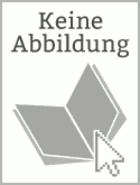-
Zusatztext
-
Kenneth Waltz's 1979 Theory of International Politics is credited with bringing about a "scientific revolution" in the study of international relations - bringing the field into a new era of systematic study. The book is also a lesson in reasoning carefully and critically. Good reasoning is exemplified by arguments that move systematically, through carefully organised stages, taking into account opposing stances and ideas as they move towards a logical conclusion. Theory of International Politics might be a textbook example of how to go about structuring an argument in this way to produce a watertight case for a particular point of view.Waltz's book begins by testing and critiquing earlier theories of international relations, showing their strengths and weaknesses, before moving on to argue for his own stance - what has since become known as "neorealism". His aim was "to construct a theory of international politics that remedies the defects of present theories." And this is precisely what he did; by showing the shortcomings of the prevalent theories of international relations, Waltz was then able to import insights from sociology to create a more comprehensive and realistic theory that took full account of the strengths of old schemas while also remedying their weaknesses - reasoning out a new theory in the process.
-
-
Kurztext
-
Kenneth Waltz's 1979 Theory of International Politics is credited with bringing about a "e;scientific revolution"e; in the study of international relations - bringing the field into a new era of systematic study. The book is also a lesson in reasoning carefully and critically. Good reasoning is exemplified by arguments that move systematically, through carefully organised stages, taking into account opposing stances and ideas as they move towards a logical conclusion. Theory of International Politics might be a textbook example of how to go about structuring an argument in this way to produce a watertight case for a particular point of view.Waltz's book begins by testing and critiquing earlier theories of international relations, showing their strengths and weaknesses, before moving on to argue for his own stance - what has since become known as "e;neorealism"e;. His aim was "e;to construct a theory of international politics that remedies the defects of present theories."e; And this is precisely what he did; by showing the shortcomings of the prevalent theories of international relations, Waltz was then able to import insights from sociology to create a more comprehensive and realistic theory that took full account of the strengths of old schemas while also remedying their weaknesses - reasoning out a new theory in the process.
-
Detailansicht

Theory of International Politics
eBook
ISBN/EAN: 9781351353533
Umbreit-Nr.: 4252263
Sprache:
Englisch
Umfang: 96 S.
Format in cm:
Einband:
Keine Angabe
Erschienen am 05.07.2017
Auflage: 1/2017
E-Book
Format: EPUB
DRM: Adobe DRM

